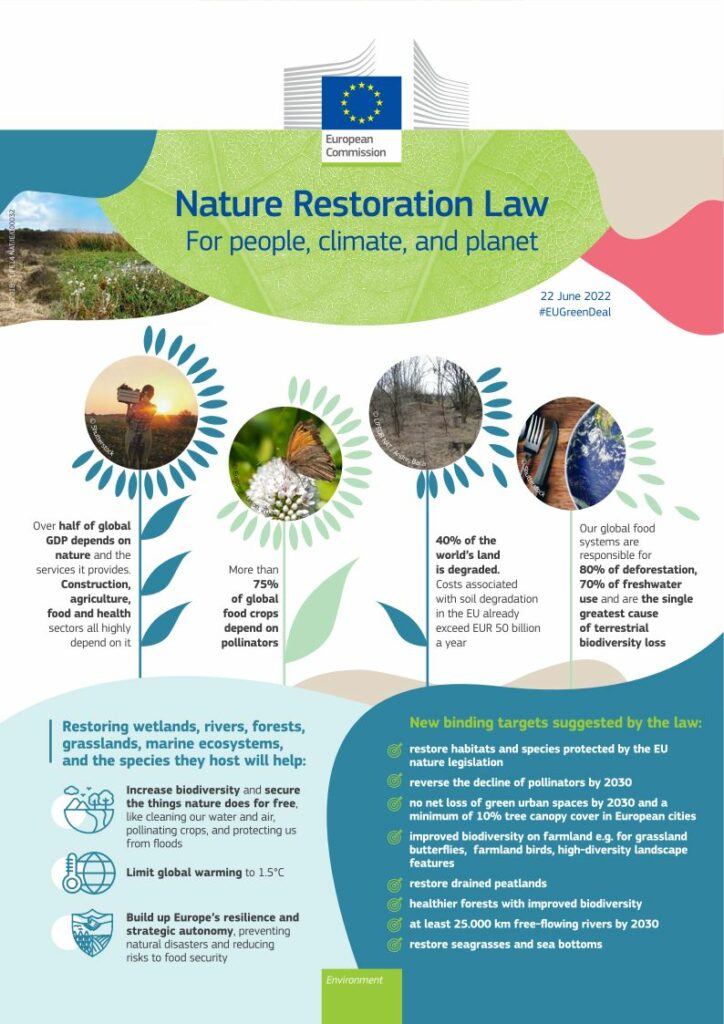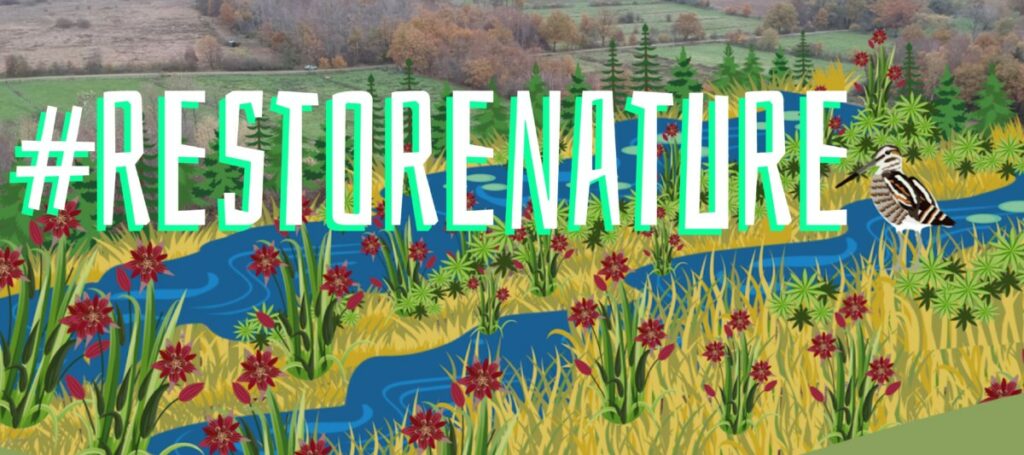On the 22nd of June 2022, the European Commission adopted the proposal for a regulation on EU Nature Restoration Law, with the aim to curb the loss of biodiversity and restore natural areas.
This proposal results from a decade in which the EU has not been able to mitigate the loss of its biodiversity, as it has also been recommended by the European Court of Auditors in its Special Report 13/2020, intending to restore at least 15% of the degraded ecosystems, also envisaged in the International Convention on Biological Diversity (1992).
The Nature Restoration Law is, indeed, the first legislative proposal with the goal to restore biodiversity and degraded ecosystems, which in Europe represent 81% of the habitats.
According to these data, it is necessary that at the EU level we share binding principles on the restoration of nature. A matter correlated to crucial issues, such as ensuring a good quality of water and air, crop pollination, protection from floods and draughts, Earth warming, prevention from natural disasters and food security as largely shown by the IPCC reports.

Unfortunately, the European legislative system has reached a deadlock. After a proposal by the European Commission, every draft regulation must be amended and approved both by the European Parliament and the Council of the EU to become binding. The suggested law faces fierce criticism mainly from conservative politicians and lobby groups representing the farming, forestry, and fishery sectors.
The sabotage of the motion, which started on the 23rd of May in the Committee on Agriculture and Rural Development (AGRI) in the European Parliament, has led to the reopening of negotiations before the plenary vote in the ENVI Committee in Parliament, occurred yesterday, resulted in 44 votes against and 44 votes in favour of the regulation.
EU countries may reach a joint position at the next meeting of environment ministers on June 20th. They are asking for more flexibility and, while they recognize restoration measures are needed, several countries point out that implementation will “be extremely demanding” especially for farmers.
In Parliament the plenary vote is scheduled for the 10th of July.
The civil society has expressed its own indignation, especially to the European parties who have expressed their opposition to the proposal (the European People’s Party, European Conservatives and Reformists, Identity and Democracy and some Renew Europe MEPs).

For this reason, a campaign has been launched on social media: citizens have started sharing photos and videos related to the beauty of nature, under the hashtag #restorenature, tagging their national MEPs (Member of the European Parliament) from the parties opposing the law.
Waiting for the results of the next vote, there is a general wish for a happy ending. It is worth to remind that only binding measures which require changes in the productive system can curb the effects of climate change – otherwise, we may just prolong an already disastrous epilogue.

